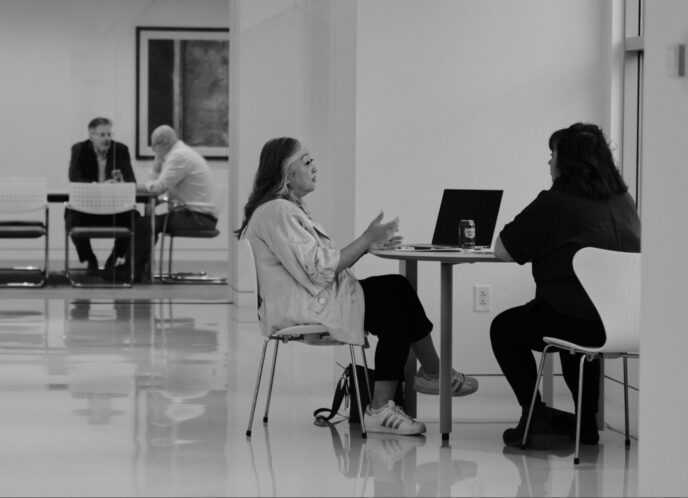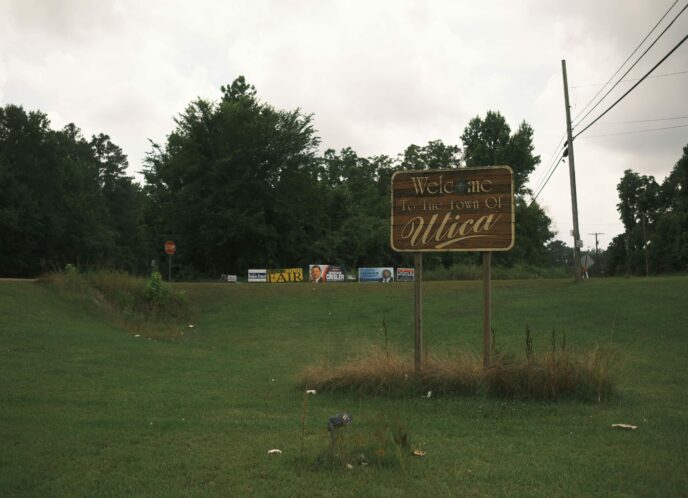For Immediate Release: September 7, 2023
Contact: Christina DiPasquale, [email protected], 202.716.1953
New Report: Utica Residents Speak Out for Broadband Connectivity in MediaJustice Report to MS’ BEAM Office
Report exposes slow Internet speeds, spotty service, digital redlining, and service denials in Utica, Seeks redress in BEAM proposal for $1.2B in federal funds earmarked for Mississippi
Utica, MS – Today, MediaJustice, a national grassroots leader advancing communication rights, access, and power for diverse communities, submitted a new report to the Office of Broadband Expansion and Accessibility of Mississippi (BEAM). This stunning report, centered on testimony from long-time Utica residents and community leaders, reveals a determined community innovating around slow Internet speeds, spotty service, digital redlining, and service denials, to meet their needs, priorities, achievements, and aspirations. The report is timed to inform BEAM’s five-year action plan, expected to be released at the end of summer, using more than $1.2B in federal funds that the Biden Administration recently allocated for broadband equity, access, and deployment in the state.
Download the full report with interview excerpts and photos here
As the Black Rural South is the most disconnected area in the U.S., MediaJustice
interviewed Utica community members on film about their struggles with broadband access, in their homes, workplaces, and houses of worship, and their recommendations for state investment in their community’s future. The report includes quotes from community members in Utica to identify Assets and Barriers to digital equity and broadband access, as well as the kinds of Solutions they would like to see implemented with the federal infrastructure funds.
In Utica, the Internet reaches the police department but not City Hall, small business owners are left with unprocessed receipts when Internet failures interrupt digital purchases, and people lose out on opportunities when they try to work, learn and care for their family at home without reliable Internet connections. Carlton Turner was shocked to learn that while AT&T determined that he was out of its service area, the company supplies his white neighbor with broadband from a box on Carlton’s property. Carlton talked to a manager and pressured AT&T to serve his home. Jean Greene and Doris McClure, other long-time residents and MediaJustice interviewees, launched a successful petition campaign for AT&T to connect the campus of Hinds County Community College. After 15 years of asking AT&T to connect her home to the Internet, Ms. Doris’ residence still remains unserved by the company–like many of her neighbors. This testimony and more are included in the MediaJustice report received by BEAM today.
“Everyone we interviewed expressed frustration with the existing Internet options in Utica–if they have service, it’s slow and unreliable; if they aren’t, they cite a cost higher than other parts of Mississippi, redlining, and neglect from Internet Service Providers and public officials,” said Brandon Forester, national organizer for Internet rights at MediaJustice and report author. “Community leaders have been innovating around these barriers so their neighbors can work, learn, worship, and stay connected, but they want BEAM’s five-year plan to include a real investment from Mississippi in Utica and other Black rural communities to improve broadband access, reliability, and accessibility while investing in local companies for infrastructure, deployment, and training. We encourage BEAM to integrate these important experiences and recommendations in their five-year plan, and to extend their outreach to Utica and other Black rural areas of Mississippi.”
BEAM estimates that Hinds County is in the top five most unserved and underserved county in Mississippi. Of all the broadband serviceable locations in the state, more than 40 percent are unserved or underserved. As BEAM points out on its website, the Federal Communications Commission’s Fabric Map–the basis for allocating federal grant funding, “doesn’t accurately capture Mississippi’s broadband reality as it overstates coverage and undercounts addresses.” To contribute to BEAM’s test to correct the FCC map and expand broadband coverage in Mississippi, visit their page here.
For interviews with MediaJustice about the report or individual interviews, please contact Christina DiPasquale at [email protected] or 202.716.1953.
###
MediaJustice is dedicated to building a grassroots movement for a more just and participatory media—fighting for racial, economic, and gender justice in a digital age. MediaJustice boldly advances communication rights, access, and power for communities harmed by persistent dehumanization, discrimination and disadvantage. Home of the #MediaJusticeNetwork, comprised of more than 100 grassroots partners, we envision a future where everyone is connected, represented, and free.



